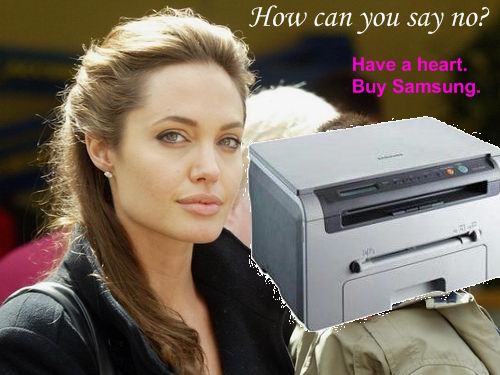From the Form 990 of the National Cattlemen’s Beef Association, a federally recognized 501(c)3 public charity (exempt from taxes because of its devotion to the public benefit):
THE PRIMARY EXEMPT PURPOSES OF THE NCBA ARE TO 1) INCREASE CONSUMER DEMAND FOR BEEF THROUGH MARKETING PROGRAMS FOCUSING ON RESEARCH, EDUCATION, PROMOTION & INFORMATION. 2) PROMOTE THE COMMON BUSINESS INTERESTS OF THE BEEF INDUSTRY IN THE UNITED STATES. 3) CONDUCT CHECKOFF FUNDED ACTIVITIES IN COMPLIANCE WITH THE BEEF PROMOTION RESEARCH ACT AND ORDER DATED JULY 18, 1986.
The IRS isn’t going to figure out who’s doing good work for you.

 Is giving just like buying a printer? No. It’s higher-stakes, and it’s more complex. Creating a guide that’s both fair and usable would be harder than what CNet has done (and what CNet has done isn’t easy).
Is giving just like buying a printer? No. It’s higher-stakes, and it’s more complex. Creating a guide that’s both fair and usable would be harder than what CNet has done (and what CNet has done isn’t easy).  1. Excessively narrow mission statements. Not only are foundations generally obsessed with “innovation” and “attacking root causes” rather than “helping people as much as possible” (something I’ll complain about more later), but they tend to spec out extremely specific, narrow guidelines, and thus force themselves into a position where very few existing world-improving efforts qualify for funding. This forces charities to design new programs around their funding guidelines; end result is that we have a huge need for funds and a huge glut of funds that can’t clear, because foundations have pre-articulated their priorities and thus stopped them from syncing with the problems actually experienced by the world. I’d call this a tragic mess.
1. Excessively narrow mission statements. Not only are foundations generally obsessed with “innovation” and “attacking root causes” rather than “helping people as much as possible” (something I’ll complain about more later), but they tend to spec out extremely specific, narrow guidelines, and thus force themselves into a position where very few existing world-improving efforts qualify for funding. This forces charities to design new programs around their funding guidelines; end result is that we have a huge need for funds and a huge glut of funds that can’t clear, because foundations have pre-articulated their priorities and thus stopped them from syncing with the problems actually experienced by the world. I’d call this a tragic mess.